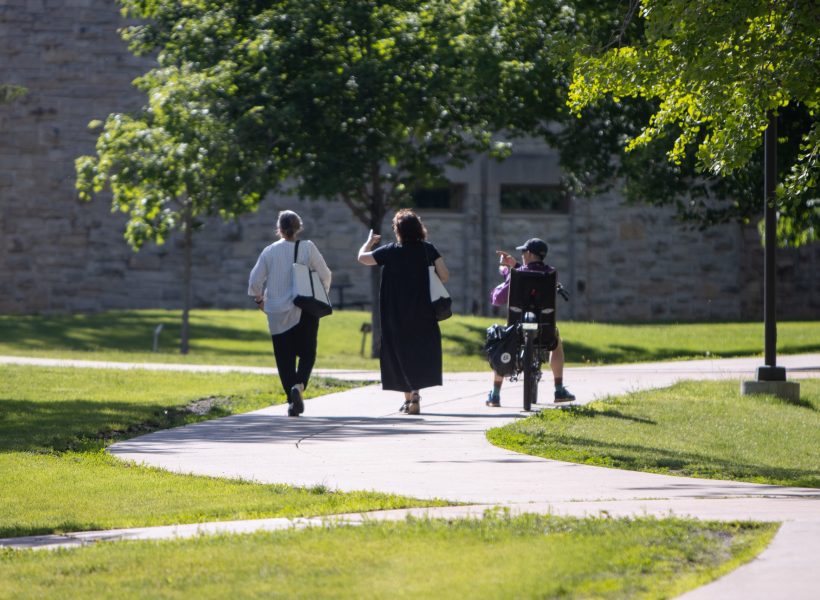MyDAC Faculty Portal
Instructors may access myDAC (Accommodations Management System) through a faculty portal to access accommodation information specific to the students in your sections:
Here you can fill out your section’s Alternative Testing Contract, review the students’ accommodation letters, and upload your course syllabus. Please watch the tutorial below for detailed instructions.
TUTORIALS:
MYDAC FACULTY PORTAL AND ALTERNATIVE TESTING CONTRACTS
MYDAC Faculty PORTAL – Approving Exam REquests
If you’d like a quick demo over the phone, please call Wyatt Lawrence at 507-786-3364.
Accommodation Letters
When a student with disabilities is approved for academic accommodations, you will receive an Accommodation Letter from the student’s Access Specialist in DAC. This letter is valid for the current semester only. All accommodation letters can be viewed in one place for your courses in the Faculty Portal of myDAC.
Students are asked to check in with you to learn if there are any logistics they’ll need to know when using the accommodations. You are also welcome to invite your students in to discuss the accommodations.
Accommodations should never pose a fundamental alteration to your course. If you foresee any issues with meeting accommodations as stated in a student’s letter, please reach out to the Accessibility Specialist on the letter. Alternate ways to accommodate the student’s disability can be discussed and determined at that time.

Syllabus Statements
Please consider using these suggested statements from the Student Life Committee’s page in your syllabus to encourage students with disabilities to notify you of their academic accommodations in a timely manner.

“Intermittent Adjustment to Attendance and Due Date Parameters”
UPDATED FALL 2024!
If you have a student with an attendance-related accommodation, a “default plan” will be listed in the student’s accommodation letter. If the “default plan” poses a fundamental alteration to your course, you may use the linked Google Form in the student’s Accommodation Letter, to specify adjustment parameters that make sense for your individual course. DAC will then communicate those parameters to your student, CC’ing you as an amendment to the accommodation letter.
Sometimes you might receive an accommodation letter with an accommodation that, if implemented, would fundamentally alter the nature of your course. If you have concerns about an accommodation as stated in your official letter you received, please reach out to the Access Specialist named in the letter to determine alternate ways the student can be accommodated that do not fundamentally alter your course.
Universal Design for Learning
The following Fast Facts for Faculty are documents created by the Ohio State University Partnership Grant. They are briefs designed to help college and university instructors improve the climate and quality of education for students of all backgrounds and abilities.
- Universal Design for Learning
- Creative and Accessible Web Content
- Guided Notes for Lectures
- Working with Students with Invisible (non-apparent) Disabilities
- Working with Students with Mobility Disabilities
- Working with Students with Sensory Disabilities (Vision, Hearing, etc.)
If you are looking for more ideas on Universal Design for Learning, the following websites are helpful:
- National Center for Universal Design for Learning
- CAST “Until Learning has no Limits”
- Do-It (Disabilities, Opportunities, Internetworking, and Technology)